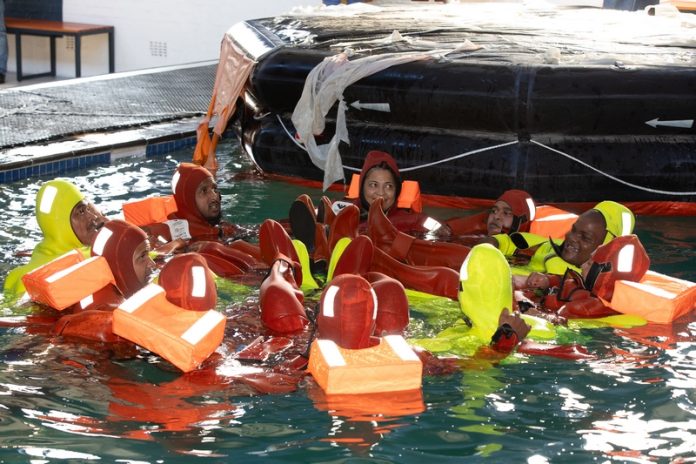
Heading to sea in a small boat to catch fish may sound like the perfect weekend recreation to some, but it’s a tough, unpredictable way to make a living.
It’s also dangerous. Conditions along South Africa’s notorious coastline can change quickly. Often small-scale fishers looking to put some food on the family table and sell the remainder of their catch don’t have much or any safety equipment on board. They have little or no first-aid training and many are unprepared for emergencies. Some are not able to swim.
The risks are not exaggerated. According to the FISH Safety Foundation, an international non-profit, working to further a positive safety culture in the sector, fishing is one of the most hazardous occupations.
Turning the Tide Through Training
In South Africa, an innovative programme marks four years of providing small-scale fishers with the information, knowledge and skills they need to make a better living, more safely.
Co-operative Sense is a partnership between the Oceana Group, owner of the iconic Lucky Star brand, the National Sea Rescue Institute (NSRI), the Department of Forestry Fisheries and the Environment and DYNA Training. Together they deliver nationwide training workshops for fishing co-operatives.
The programme provides practical guidance on running a financially sustainable fishing business but safety at sea is an equally important focus. At every workshop, the NSRI presents courses on safety protocols before venturing out to sea, when at sea and how to handle emergencies. There is also a practical first aid course.
Building Sustainable Livelihoods — and Safer Ones
Oceana’s CEO, Neville Brink, explains that the different aspects of the course bring much-needed skills and support to people who earn a living from the sea.
“Safety at sea and running a financially successful co-operative are intertwined. Not only do the workshops ensure the participants are aware of and know how to anticipate or deal with safety issues, but fishers earning a living through a financially sustainable co-operative are less likely to venture out in dangerous conditions because they’re desperate.”
More than 981 Small Scale Fisher people from 142 cooperatives across the Eastern, Northern Cape, Western Cape and KwaZulu Natal have participated in the workshops which are delivered in their preferred language: isiZulu, isiXhosa, English or Afrikaans.
A Lifelong Commitment to Saving Lives
This does not include the commercial crews on Oceana vessels, who are required to pass the safety at sea course presented at the Oceana Maritime Academy.
The Oceana Maritime Academy also provides water safety and first aid training to the community in Hout Bay and surroundings, where it is situated.
Brink explains that the safety at sea training for small-scale fishers developed from Oceana’s 23-year relationship with the NSRI.
“We’ve been long-term supporters of the NSRI because anyone who goes to sea on one of our vessels must have the peace of mind that if needed, help is at hand.”
Oceana is an NSRI platinum partner, providing annual funding. It also arranges fundraising events such as an annual golf day, which raised an additional R235 000 this year.

